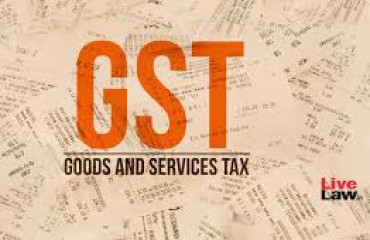
The Directorate General of GST Intelligence (DGGI) is gearing up to issue extensive tax demands to firms in the online gaming sector, with some demands reportedly up to 16 times the initially computed taxes paid by these firms and, in some instances, exceeding 10 times their annual revenue, according to sources familiar with Mint. Why is the body making these claims, and are they substantiated? Mint explains
The Directorate General of GST Intelligence (DGGI) is gearing up to issue extensive tax demands to firms in the online gaming sector, with some demands reportedly up to 16 times the initially computed taxes paid by these firms and, in some instances, exceeding 10 times their annual revenue, according to sources familiar with Mint. Why is the body making these claims, and are they substantiated? Mint explains
What is the quantum of tax that DGGI is claiming from online gaming firms?
The DGGI's tax claim in September against Bengaluru-based Gameskraft stood at ₹21,000 crore for FY22, but was dismissed by the Karnataka high court in May. However, following the central government's decision to levy a 28% tax on the sector, the Supreme Court on 6 September halted the Karnataka HC's ruling. Startups Dream11 and Games24x7 have since been slapped with nearly ₹60,000 crore in tax demands, and five additional startups may face combined GST demands of nearly ₹40,000 crore soon. DGGI's total tax claims could amount to ₹1.5 lakh crore, according to at least three industry stakeholders.
What is the basis of DGGI tax claims?
The DGGI has claimed that Gameskraft misclassified its business, clubbing it under gambling instead of gaming, resulting in these unprecedented tax claims. With the new tax regime, the DGGI, sources said, is filing retrospective tax claims, with intimations suggesting that the appropriate tax slab for online gaming firms should have been the new rate for the previous year as well—as opposed to the previous tax rate of 18% on net earnings. This difference is to the order of around 15-16x of what the tax rate on the sector was in FY22—which is the period for which DGGI's claims are based on.
What is the difference in tax computation between startups and DGGI?
Under the previous taxation regime, a gaming startup receiving ₹100 as a user fee, yielding a platform fee of ₹10, would pay 18% GST on the ₹10, totaling ₹1.8. The revised tax structure requires 28% GST on the entire ₹100, raising the tax to ₹28—exemplifying a nearly 15-fold difference in tax computations between the DGGI and the firms.
How has the gaming industry reacted so far?
Industry representatives have criticized the DGGI's demands as exorbitant and unsustainable. For context, Gameskraft posted ₹2,112 crore in revenue for FY22, while the DGGI's GST demand for Dream11's parent company, Sporta Technologies, is roughly ₹40,000 crore, tenfold its reported ₹4,056 crore revenue for FY22. Lawyers, representing the sector, argue that without explicit guidelines for retroactive application of the new tax rate, the DGGI's claims appear skewed. Two senior consultants have cautioned that these claims, if upheld, could financially cripple even major gaming enterprises.
Is there any legal basis to DGGI's claim?
Most court judgements have so far ruled in favour of most games offered by these startups as games of skill, including India's apex court. This, legal consultants to the sector said, is one of the biggest reasons why a retrospective claim of a GST rate at the same level as gambling and lottery should not hold under law—especially since finance minister Nirmala Sitharaman did not specify any clause of retrospective implementation of the new tax rate on the sector. Segregation of games of skill and chance should also help differentiate startups such as Gameskraft, Dream11 and Games24x7 from gambling and lottery entities, they said.
